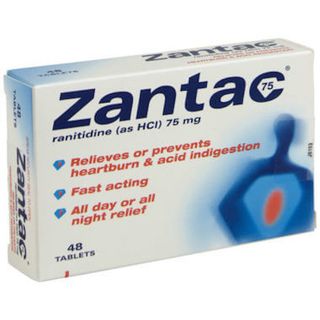
Acid Reflux & Heartburn
Acid reflux, also known as heartburn, can make eating a miserable experience. It feels like acid burning in your chest or throat which is exactly what it is – excess stomach acid travelling the wrong way up your oesophagus to places where it shouldn’t be. An occasional attack is easily managed at home but if you suffer regularly, it can damage your throat and lead to the chronic condition, gastro-oesophageal reflux disease. Thankfully, there are plenty of effective over-the-counter and prescription treatments to make you feel more comfortable when you eat.
Acid Reflux & Heartburn Treatments
 Zantac 75 Relief£10.592 reviews
Zantac 75 Relief£10.592 reviews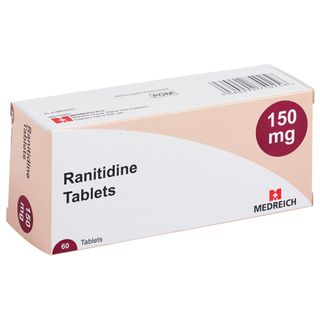
Ranitidine 150mg Tablets
Ranitidine 150mg Tablets£16.9945 reviews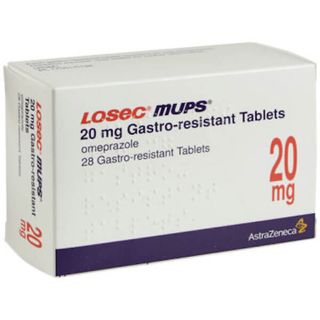
Losec MUPS 20mg Tablets
Losec MUPS 20mg Tablets£27.998 reviews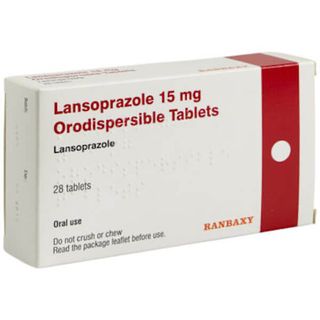
Lansoprazole 15mg Orodispersible Tablets
Lansoprazole 15mg Orodispersible Tablets£23.9910 reviews- Out Of Stock
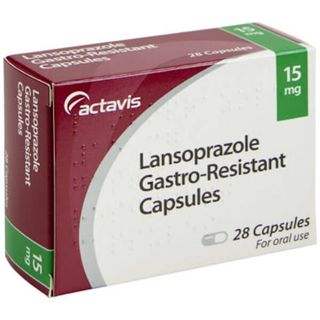
Lansoprazole 15mg Capsules
Lansoprazole 15mg Capsules£17.9924 reviews - Out Of Stock
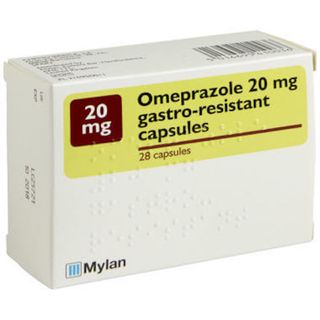
Omeprazole 20mg Capsules
Omeprazole 20mg Capsules£16.9973 reviews - Out Of Stock
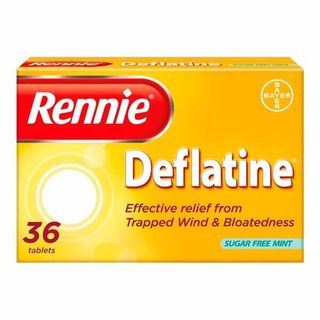
Rennie Deflatine
Rennie Deflatine - Out Of Stock
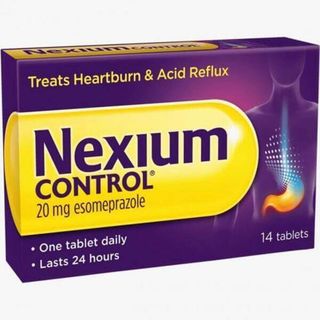
Nexium Control
Nexium Control - Out Of Stock
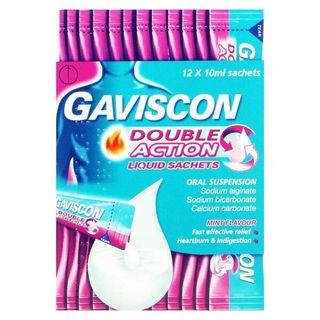
Gaviscon Double Action Liquid Sachets
Gaviscon Double Action Liquid Sachets - Out Of Stock
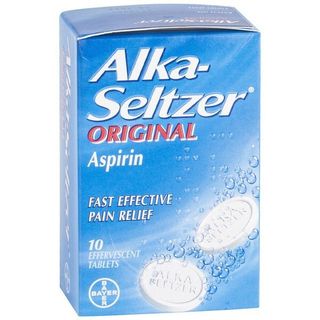
Alka-Seltzer
Alka-Seltzer Original - Out Of Stock
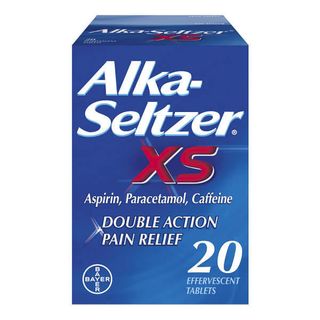
Alka-Seltzer XS
Alka-Seltzer XS - Out Of Stock
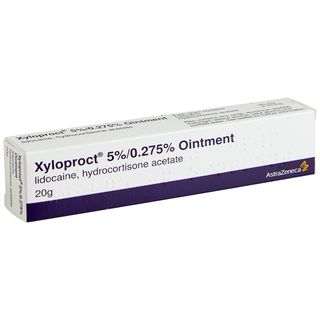
Test Product - Single Product - cp
Test Product - Single Product - Out Of Stock
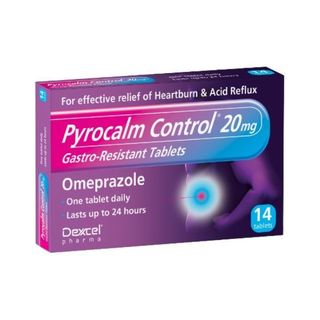
Pyrocalm Control 20mg Gastro-Resistant Tablets
Pyrocalm Control 20mg Gastro-Resistant Tablets - Out Of Stock
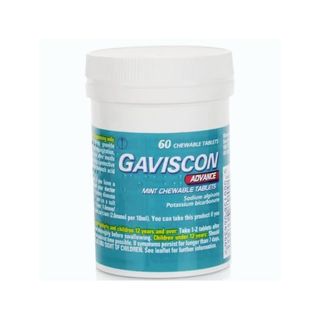
Gaviscon Advance Mint Chewable Tablets (60)
Gaviscon Advance Mint Chewable Tablets (60) - Out Of Stock
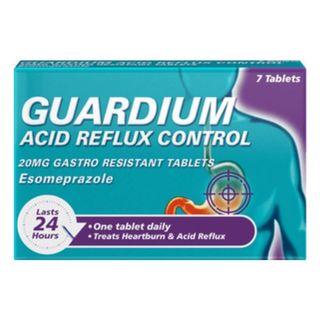
Guardium Acid Reflux Control Tablets (14)
Guardium Acid Reflux Control Tablets (14) - Out Of Stock
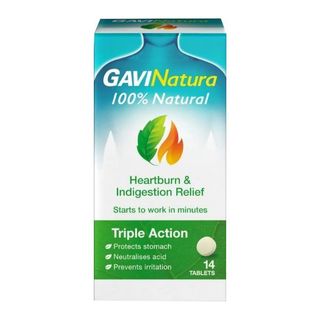
Gavinatura Natural Heartburn & Indigestion Relief 14 Tablets
Gavinatura Natural Heartburn & Indigestion Relief 14 Tablets - Out Of Stock
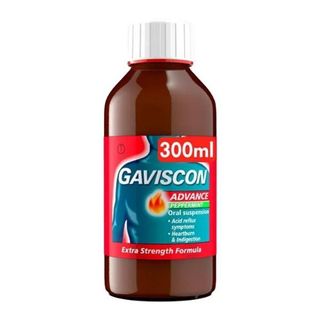
Gaviscon Advance Liquid Heartburn Relief Peppermint 300ml
Gaviscon Advance Liquid Heartburn Relief Peppermint 300ml - Out Of Stock
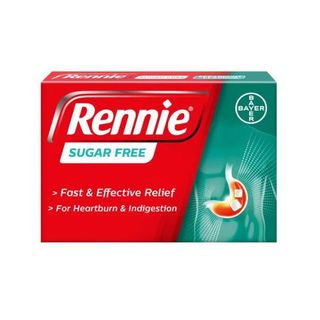
Rennie Sugar Free Spearmint Flavour Chewable Tablets (36)
Rennie Sugar Free Spearmint Flavour Chewable Tablets (36) - Out Of Stock
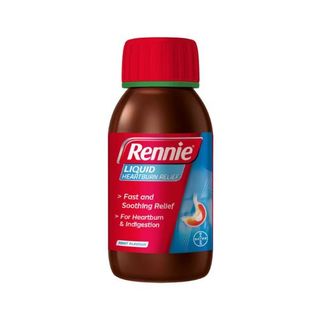
Rennie Liquid Heartburn Relief 150ml
Rennie Liquid Heartburn Relief 150ml - Out Of Stock
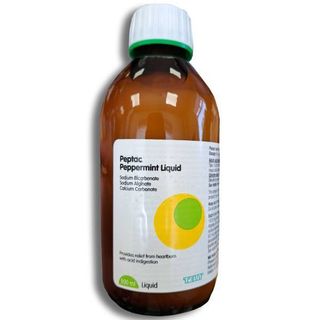
Peptac Liquid Peppermint 500ml
Peptac Liquid Peppermint 500ml - Out Of Stock
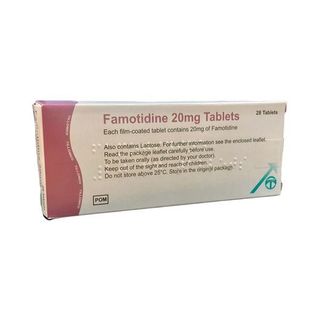
Famotidine Tablets
Famotidine 20mg Tablets - Out Of Stock
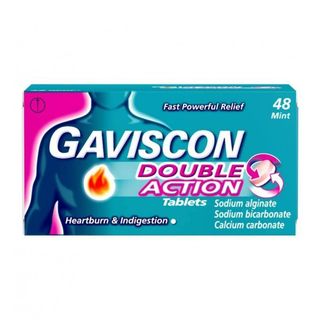
Gaviscon Double Action Tablets
Gaviscon Double Action Tablets28 reviews - Out Of Stock

Experiment Single Product
Experiment Single Product - Out Of Stock
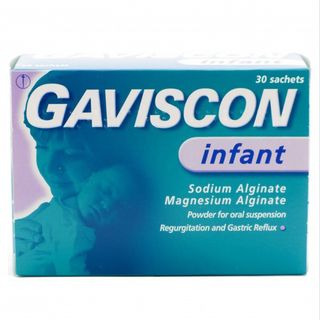
Gaviscon Infant Sachets
Gaviscon Infant Sachets11 reviews - Out Of Stock
Test Product with Children - Parent - cp
Test with Children - Parent
Start your assessment for Acid Reflux & Heartburn
Don't wait to get the medical help you need.
Once you complete a short online assessment about your condition, you will be able to select your preferred treatment and quantity from a list of appropriate options for you.
Reviewed by our UK-based medical team
Takes less than 3 minutes to complete
Approved treatments dispatched same day (before 3pm)
Ordering as easy as 1, 2, 3
1. Find the ideal treatment
We can provide over 1099 leading medicines to treat over 94 conditions.
2. Get a free consultation
Our qualified healthcare professionals will assess your condition and needs.
3. Enjoy speedy delivery
And when the time comes to re-order, it'll only take a couple of clicks.
Advice for Acid Reflux & Heartburn
What causes Acid Reflux & Heartburn?
Buy acid reflux and heartburn treatment here at The Independent Pharmacy, following an online consultation. Choose from a selection of effective medications to combat symptoms and reduce discomfort caused by this condition. The Independent Pharmacy makes ordering medication easy for those that need it the most. Order now for speedy fulfilment, convenient delivery and discreet packaging.
Acid reflux and heartburn are similar conditions that are caused by Gastroesophageal Reflux Disease (GORD). GORD is a very common condition where acid from the stomach leaks out into the oesophagus (gullet) and can travel all the way up to the throat.
There are various reasons why someone may suffer from acid reflux or heartburn, the most common being a failure of the lower oesophageal sphincter. This sphincter comprises a ring of muscles that act as a valve, allowing food to enter the stomach whilst keeping acid from exiting. If the lower oesophageal sphincter doesn’t close fully, it can let acid leak up out of the stomach.
There are known triggers that can contribute to experiencing acid reflux and heartburn, these include:
- Being overweight: Carrying extra weight can place increased pressure on your stomach. This pressure can lead to a weakening of the lower oesophageal sphincter allowing acid to move back up your gullet from your stomach
- Being pregnant: Fluctuating hormonal levels can weaken the lower oesophageal sphincter
- Eating a diet high in fat. The stomach takes longer to dispose of stomach acid after digesting a high-fat meal
- Tobacco, coffee, alcohol or chocolate: All these can relax the lower oesophagus sphincter
- Hiatus hernia: where part of the stomach protrudes up through the diaphragm
- Certain medicines: Calcium-channel blockers and nitrates can relax the lower oesophagus sphincter. Non-steroidal anti-inflammatory drugs (NSAIDs) can irritate and inflame the oesophagus lining, leading to heartburn
- Stress
- Eating large meals or lying down after eating a meal
What are the symptoms of Acid Reflux & Heartburn?
Acid reflux will involve stomach acid being regurgitated into your throat and mouth. This regurgitation will commonly lead to a sour-bitter, ‘acidy’ taste at the back of your mouth and throat.
Heartburn differs slightly as it will present as a discomforting burning pain just below your breastbone. This pain can move into the chest and even into the throat. This pain is usually found to be worse after eating, or when bending over or lying down.
If you are only experiencing symptoms a few times a month that can be attributed to food and/or drink then it may not be necessary to see a doctor; self-diagnosis and treatment is likely to be appropriate.
If the symptoms are new in onset or become more severe and frequent and the use of over-the-counter remedies has proven ineffective then it is then recommended to seek medical advice.
Less common symptoms that can be the result of regurgitated stomach acid include:
- Nausea
- A persistent cough that worsens at night
- Wheezing
- Chest pain
- Tooth decay
- Laryngitis
If you have any of the above symptoms, you should discuss them with your GP first.
How is Acid Reflux & Heartburn diagnosed?
For the majority of cases, a doctor will be able to diagnose gastroesophageal reflux disease from your symptoms and medical history – this is covered as part of your consultation. For mild and infrequent cases of acid reflux, indigestion or heartburn that are associated with food, alcohol or other known causes, self-diagnosis may be appropriate.
If you have any of the following symptoms, physical examination by your doctor will be required:
- Pain when swallowing. This is also known as odynophagia.
- Difficulty when swallowing. This is also known as dysphagia.
- Symptoms have not improved despite having taken prescription medication such as Omeprazole or Ranitidine.
- Symptoms that are new in onset, especially if you are aged over 45 years.
- Other serious symptoms such as severe pain, persistent diarrhoea/constipation or blood in the stools.
If required, your doctor can carry out further testing of your symptoms using various different methods. These include:
- Endoscopy: This is performed using an endoscope, which is a long flexible tube with a camera and light at one end. This tube is inserted into the throat and can help visually detect any damage to the oesophagus.
- Manometry: This is performed using a small tube that contains pressure sensors. The device is inserted through the nose and fed down to the lower oesophageal sphincter where it is able to detect the pressure generated by the muscle and how well it is performing.
- Barium swallow test: This test involves drinking a non-toxic liquid called barium solution. This solution shows up clearly on X-rays. Once the liquid has moved down into the upper digestive system a series of X-rays are taken. These X-rays can then reveal any blockages or problems with the muscles used when swallowing.
- 24-hour pH monitoring: This test is designed to measure the acidity levels around the oesophagus. It uses a small probe, which is fed down to the oesophagus via the nasal cavity. The probe is connected to a small monitoring device that attaches to your wrist. Every time you become aware of your symptoms you push a button on the device. After 24 hours the probe is removed and the data then analysed.
What treatments are available for Acid Reflux & Heartburn?
There are many treatment options available for this condition. Very mild cases can sometimes be treated using over-the-counter medications, such as:
- Pepto Bismol
- Maalox
- Calcium Carbonate preparations, such as Bisodol, Remegel, Rennies
- Alginate preparations, such as Gaviscon and
Peptac
Most over-the-counter antacid remedies work by neutralising the effects of stomach acid. Alginate preparations, such as Gaviscon work differently. Alginates provide a protective coating, designed to shield the lining of the stomach and oesophagus from the effects of stomach acid. These work best if taken just after eating a meal.
If over-the-counter treatments are proving ineffective then you may try a proton-pump inhibitor (PPI). Proton-pump inhibitors are widely used as they are well tolerated by most patients and rarely produce side effects. PPIs work by reducing the amount of acid produced by the stomach. Examples of PPIs include:
- Omeprazole (Losec)
- Esomeprazole (Nexium)
- Lansoprazole (Zoton)
- Pantoprazole (Pantoloc)
When prescribing PPIs, such as Omeprazole, you start with the lowest possible dose that will be effective in controlling your symptoms. If Omeprazole 10mg Capsules are ineffective, it is important to inform your prescriber so they can assess and potentially increase your dose.
Another type of treatment is H-2 antagonists, such as Famotidine. Famotidine blocks the production of stomach acid by a different mechanism to PPIs but with the same acid-reducing effects. Ranitidine is a long-established and effective treatment for acid reflux and heartburn that is well tolerated and normally causes few side effects.
If PPIs, such as Omeprazole, and H-2 antagonists, such as ranitidine, have proven ineffective or if the thought of taking medication on a long-term basis is unappealing, then surgery can be an alternative. You should discuss this with your GP.
What can I do to prevent Acid Reflux & Heartburn?
There are steps you can take which will help reduce the risk of experiencing acid reflux and heartburn. These include:
- Losing weight may reduce your symptoms as it will relieve the pressure on the stomach.
- Changing your eating habits to include smaller, more frequent meals as opposed to three large meals. Ensure your final meal of the day is eaten three to four hours before going to bed.
- Avoid trigger foods, such as alcohol, coffee, chocolate, tomatoes and anything fatty or spicy. If any of these have proven to make your symptoms worse, it is recommended they be avoided.
- Smoking can irritate the digestive system, making symptoms worse. Giving up smoking will help reduce the risk of developing acid reflux or heartburn.
- Raising the head of the bed by approximately twenty centimetres (8 inches). This technique can help reduce symptoms in some people. Ensure the bed is stable and sturdy before sleeping in it. Don’t use extra pillows as this can add pressure on the abdomen.
- If you suspect the acid reflux and heartburn are side-effects of a medicine you are currently taking, it is advised to discuss with your GP whether an alternative is available. It is not recommended to cease taking prescribed medication without first discussing it with you doctor.
Alternatives
There are many treatment options available for acid reflux and heartburn. Very mild cases can sometimes be treated using over-the-counter medications (available without a prescription from your pharmacy), such as:
- Pepto Bismol
- Maalox
- Calcium Carbonate preparations, such as Bisodol, Remegel, Rennie and Tums
- Alginate preparations, such as Gaviscon and
Peptac
Most over-the-counter antacid remedies work by neutralising the effects of stomach acid. Alginate preparations, such as Gaviscon work differently. Alginates provide a protective coating, designed to shield the lining of the stomach and oesophagus from the effects of stomach acid. These work best if taken just after eating a meal.
Acid Reflux & Heartburn FAQs
It is the movement of the stomach contents up the oesophagus or gullet. Often causing an uncomfortable or burning sensation behind the breastbone.
In more serious or left untreated, Stomach contents can be regurgitated into the mouth affecting the teeth, gums and causing bad breath.
Sometimes the regurgitated fluid can enter the airways and exacerbate or make asthma worse.
The stomach has a small circular piece of muscle at the top, called the cardiac or lower oesophageal sphincter.
This stops the stomach contents from travelling back up the oesophagus or gullet.
When this muscle becomes weakened, the stomach contents can travel up and cause symptoms like heartburn, bad breath and the feeling of being sick.
It is very common and 60% of people will have reflux or similar symptoms in a 12-month period.
In the same period, 20-30% of people will have symptoms on a weekly basis.
The movement of acid can give the following symptoms
- Burning feeling behind the breastbone
- Feeling sick
- Being sick
- Bad breath
- Tooth and gum problems
- Worsening of asthma
The following can make acid reflux worse.
- Being overweight or obese
- Smoking
- Eating spicy food,
- Large meal sizes
- Late night Eating, within 2 hours of going to sleep
- Alcohol
- Coffee
- Chocolate
- Pregnancy
- Tight Clothing
- Certain medicines for blood pressure like Calcium channel blockers, medicines for angina like glyceryl trinitrate and painkillers like ibuprofen, diclofenac and other anti-inflammatory drugs.
- Stress
- Genetics
Most symptoms of acid reflux can be treated either with over the counter remedies or by visiting your pharmacy.
It’s important to get your symptoms checked by a Doctor if you’re
- Getting symptoms several times a week
- Symptoms are getting worse
- Symptoms are not being controlled by over the counter or pharmacy medicines
- Being sick or vomiting blood
- Having difficulty in swallowing
There are different categories of treatment and their uses and explanations are listed below.
Generally, patients should start with antacids and then make their way down the list if treatment does not control their symptoms.
1. Antacids – the first line treatment. These help neutralise stomach acid to relieve symptoms. The effects usually last for 2-3 hours. Examples of antacids include Rennie, Enos, Andrews Salts, and Tums. They contain ingredients like calcium carbonate, which neutralizes stomach acid, but too much calcium taken regularly can make acid reflux worse. Only be for occasional or infrequent use.
2. Alginates – neutralize and form a layer on the top of stomach acid, which prevents upward movement. Are available in tablet and liquid forms. Liquids act quicker but are more inconvenient to carry around. Usually, these last no more than 3-4 hours.
Alginates are made up of calcium carbonate, magnesium carbonate or aluminum salts. Too much calcium taken frequently can cause stomach acid to worsen, so should only be used infrequently. Excessive magnesium salts can cause diarrhoea and too much aluminum salts can cause constipation.
Always check with pharmacist, as alginates can interact with other medication. Examples include Gaviscon, Gaviscon Advance, and Peptac.3. H2 Receptor Antagonists – available as tablets. They reduce the production of stomach acid and were initially introduced on prescription, before being available to buy from pharmacies. They start to work in as little as 30 minutes and their effects can last for up to 12 hours. They are well tolerated and side effects are rare. They can include diarrhoea, tiredness, rashes, and constipation. Examples include Ranitidine, Zantac, Gavilast, Cimetidine, and Pepcid AC.
4. Proton Pump Inhibitors – or PPIs for short, are the latest medicine for controlling acid reflux and other stomach symptoms. They work by reducing the stomach acid, but are more effective and last longer. Effects can be seen up to 17 hours after the dose is taken. They come in tablet or capsule forms, be should be swallowed whole (Losec Tablets can be crushed if needed). PPIs are very well tolerated, with low incidence of side effects. Usually, unwanted effects include diarrhoea, constipation, drowsiness. Examples include Omeprazole, Pantoprazole, Losec, Nexium, and Pantoloc.
Short-term treatment with medication will help to control and alleviate the symptoms. Treatment time varies with different medication and can be very quick with antacids working within minutes and H2 receptor Antagonists and PPI’s up to 60mins.
Non-medicinal treatments to help alleviate acid reflux include:-
- Eat smaller portions spread out through the day rather than 3 main meals
- Avoid eating at least two hours before going to bed
- Stop smoking
- Reduce alcohol intake
- Reduce stress
- Loosen tight clothing
- If it’s worse at night, then use another pillow to prop yourself up or elevate the head end of the bed.
- Lose weight
- Check your medication with your pharmacist or Doctor to ensure it's not causing your symptoms.
- Overall health and well-being (taking vitamin supplements)
Yes, acid reflux can affect the sinuses for those that are struggling with the condition over a long period of time. Acid reflux can actually cause hoarseness, sore or burning throat, post-nasal drip, sinusitis, cough and lots more.
Given the close proximity of acid reflux symptoms and your nose throat and ears, it’s common to have other symptoms that affect that specific area.Acid reflux and heartburn affect the body in a number of different ways. The severity of symptoms vary from person to person, however,there are some similar signs that tend to be consistent. Things like burning in the chest behind the breastbone, pain after eating or lying down and a sore throat.
Acid reflux can cause stomach acid to be brought up into the mouth causing bad breath, tooth decay and discolouration of the tongue in some cases.
If this condition is still not easing after taking medication or you have been suffering with it for more than a couple of times a month, then this can be caused by other medical conditions such as stomach ulcers, issues with the oesophagus or GORD.There are different stages of GORD which is why it is so important to speak to a healthcare professional if symptoms persist.
Acid reflux is usually diagnosed from your symptoms. Our doctors will ask about your symptoms, when they occur and the severity. From this, they will be able to make a diagnosis of acid reflux or heartburn. Simply fill in our consultation form so we can ascertain your medical history.
Depending on the severity of the condition, doctors may prescribe medication to help get symptoms under control. If they are unable to determine the cause of your symptoms, or they are very severe, you may be sent for more in depth-testing. This will help to determine the cause and the right form of treatment for your specific condition.
Treatment for GORD may differ depending on the stage of the disease you are in. If you are experiencing symptoms of acid reflux or heartburn on a regular basis then it’s important to consult a doctor to avoid complications.
Some believe that milk and other natural remedies will help to ease the symptoms of acid reflux and heartburn. However, their effectiveness is unknown. Milk is known to reduce symptoms straight after drinking it, but could actually cause symptoms to become worse after a while. This is mainly because of the high quantity of fat in milk products.
If you would like to reduce the symptoms of acid reflux or heartburn then the best option is using specifically designed medication to treat the underlying causes of the condition.
It is best to treat a baby or young child suffering from heartburn or acid reflux using natural means. The best way to do this effectively is to change your child's eating pattern, holding them upright for 30 minutes after feeds and raising the head of the baby's crib.
Guides for Acid Reflux & Heartburn
How To Get Rid Of Heartburn
We've written 1
more guides
for Acid Reflux & Heartburn
We also offer health & advice tailored to you.


